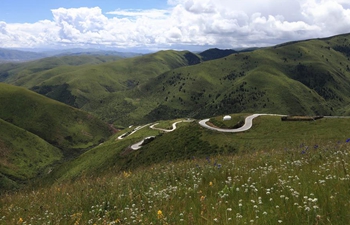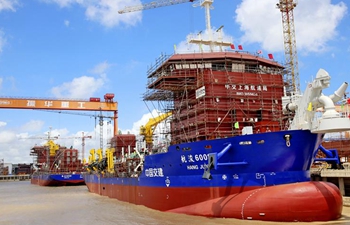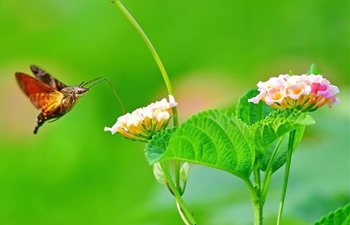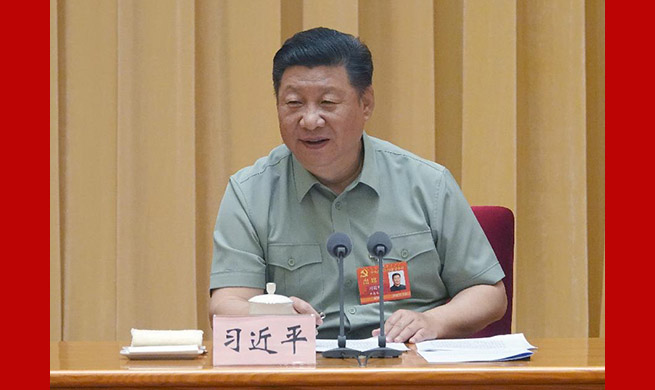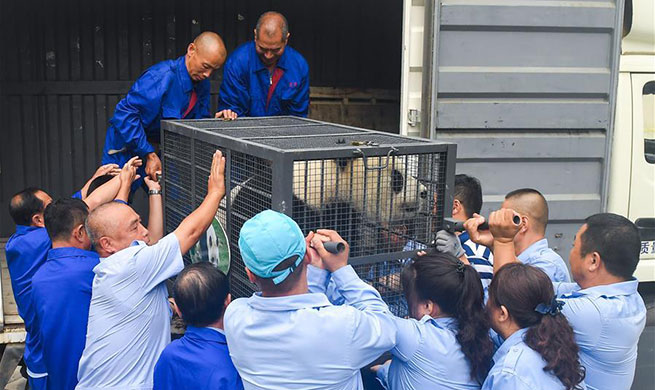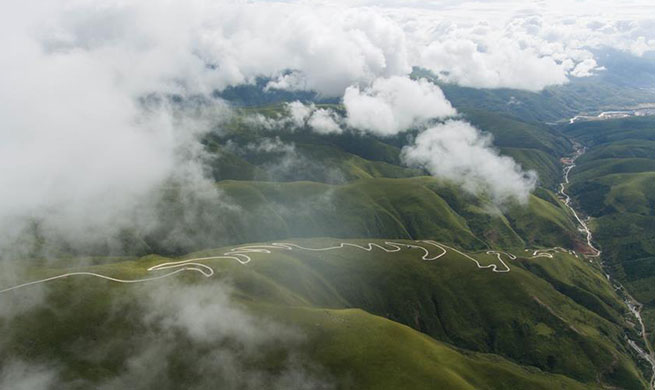by Xinhua writers Yang Dingdu, Zhu Ruiqing, Deng Xianlai
COLOMBO, Sri Lanka, Aug. 20 (Xinhua) -- In 1824, a British ship arrived at the island of Ceylon -- now known as Sri Lanka -- loaded with tea trees from southeast China's Wuyi Mountains that were later hybridized with the Assam black tea from India and resulted in a new variety, the Ceylon tea.
Some four decades later, the Ceylon tea was carried by commercial vessels sailing further westward and ultimately reached Europe, where it soon gained vast popularity.
Cultural exchanges between China and Sri Lanka, accelerated nearly 200 years ago by the trade of tea, continues today.
The South Asian island country is among the first to endorse the China-proposed "21st Century Maritime Silk Road" under which it has a great number of projects co-launched with Chinese companies.
Cultural convergence is a big challenge for CICT, a subsidiary of Hong Kong-based China Merchants Group that builds and operates the South Container Terminal of the Port of Colombo, the only deep-water container terminal in South Asia.
"How do we integrate the many Sri Lankan employees into our company and let them wholeheartedly accept and agree with our standards, visions and goals?" Huang Peng, CEO of CICT, said, adding that his method is to take time to drink tea with every one of the domestic employees and let them express their thoughts freely.
Pasinda Nayanajith, 25, said he enjoys black tea, and enjoys his work at CICT even more. Previously a electrician and now a supervisor, Nayanajith said that the work has taught him a lot, and that he wishes to become a duty manager or a chief inspector in the future.
According to company staff, what attracts the Sri Lankan workers to CICT the most is the opportunity to visit China Merchants Group's home port in Shenzhen in southern China, getting first-hand experience of the vitality of the Chinese port and learning about state-of-the-art technologies in Chinese universities.
Instilled with the gene of China's Wuyi black tea, Ceylon tea has become one of the most celebrated black teas in the world, with varieties cultivated in Uva province and Nuwara Eliya city being among the best known. Sri Lanka is now the world's biggest black tea producer and exporter.
The Port of Colombo handles the world's largest amount of tea exports, with the Ceylon tea setting sail every day along the Maritime Silk Road sea route toward every corner of the world.
In the end, it's the tea that binds the employees with the company.
"From office maintenance to salary raises, the company quickly gets to know the various needs of our staff, solves them as soon as possible, and builds deeper trust with everyone," Huang said. "It's all accomplished through a sip of tea."






